If you are currently in Mexico under the auspice of a Visitor’s permit and subsequently decide to apply for residency here, you probably need to leave Mexico to commence the application, and return to complete the process.
The immigration rules also legislate for a small few exceptions whereby foreigners in specific circumstances may exchange a Visitor permit (FMM) for a residency permit from within Mexico without having to leave the country. This article describes the exceptions.
Who can apply for residency from within Mexico?
In certain specific situations, foreigners currently in Mexico holding a Visitor’s permit (FMM) can apply for a temporary or permanent residency permit without leaving the country, most usually under the auspice of a “Family Unit” application, and certain other circumstances, described in this article.
What is a “Family Unit” residency application in Mexico?
A “Family Unit” visa application means that you apply for legal residency based on certain family roots or connections you have to Mexico—through a blood line, or through marriage/civil partnership. Roots and connections that qualify under the ‘Family Unit’ routes to residency are defined in Mexican immigration law and summarized in the bullet points below.
Applying at an Immigration Office in Mexico -vs- at a Consulate abroad
In most cases it’s advantageous to apply for residency via Family Unit at an immigration office in Mexico: qualifying applicants arrive in Mexico as a visitor, and exchange the visitor permit for a residency card in Mexico. Applicants must get some foreign-issued documents apostilled and translated into Spanish.
Optionally, you can also apply for Mexican residency under the Family Unit rules from outside of Mexico, at a Mexican Consulate abroad. If you do this, the Mexican Consulate will process your application based on the Family Unit rules and place a visa sticker in your passport that you will need to exchange for a residency card in Mexico.
Our associates can provide advice and assistance for Family Unit applications if you need help with the approach and the paperwork.
Foreigners may apply for Temporary Residency (Residente Temporal) in-country if the foreign applicant is:
- The spouse of a foreigner holding a temporary or permanent resident card (learn more about residency through marriage or common-law partnership); or
- The parent (mother/father) of a foreigner holding a temporary resident card; or
- The son or daughter of a foreigner holding a temporary resident card, provided that the son or daughter is a minor (under 18 years of age); or
- The son or daughter of the spouse of a foreigner holding a temporary resident card, provided that the son or daughter is a minor (under 18 years of age); or
- A foreign spouse of a Mexican national. (Learn more about residency through marriage or common-law partnership.)
Foreigners may apply for Permanent Residency (Residente Permanente) in-country if the foreign applicant is:
- The parent (mother/father) of a foreigner holding a permanent resident card; or
- The son or daughter of a foreigner holding a permanent resident card, provided that the son or daughter is a minor (under 18 years of age); or
- The sibling of a foreigner holding a permanent resident card, provided that the sibling is a minor (under 18 years of age); or
- The son or daughter of the spouse of a foreigner holding a permanent resident card, provided that the son or daughter is a minor (under 18 years of age); or
- The son or daughter of a Mexican National in situations where the offspring are not entitled to Mexican Nationality and provided that the son or daughter is a minor (under 18 years of age); or
- The son or daughter of a spouse of a Mexican National provided that the son or daughter is a minor (under 18 years of age)
- The foreign parent of Mexican-born children; or
- The sibling of a Mexican National (including naturalized foreigners) provided that the sibling is a minor (under 18 years of age); also
- Existing foreign residents who have 4 consecutive years of Temporary Residency may apply to exchange their Temporary Residency permit for a Permanent Residency permit; they do not have to leave Mexico to make this exchange.
Applications via the ‘Special Procedure’ (RNE)
A special procedure is currently in force, sometimes referred to as ‘RNE’ (Registro Nacional de Extranjeros), that allows people in some situations to exchange an expired visitor’s permit for up to four years of Temporary Residency. You can learn more about the special procedure here.
Humanitarian and political asylum cases
Foreign nationals may also apply to exchange a FMM for a residency permit inside Mexico on Humanitarian grounds, or by applying for Political Asylum. These are very specialized applications with specific rules and conditions attached to them. Contact your nearest INM office for advice and guidance about this.
Everyone else
If your situation does not fold into one of those described above, you must apply for your initial residency permit from outside Mexico, by personally attending one of the many Mexican consulates abroad.
Existing residency card renewals and exchange from temporary to permanent
Note that if you currently hold an existing Mexican residency card, you must renew or exchange your residency card in Mexico—regardless of what route you used to obtain it.
Principal routes to residency in Mexico
If you do not qualify for residency under the Family Unit rules you will need to apply for residency via an alternative route—most applications are granted on the basis of economic solvency.
- You can learn about the principal routes for obtaining residency in Mexico here on Mexperience.
- Read a detailed summary of the application process here.
Mexico Immigration Assistance Service
If you would like assistance with applications from abroad or from inside Mexico, through Family Unit or another route, and whether you are applying for the first time or renewing an existing permit, or regularizing your status in Mexico with a special procedure, consider using our Mexico Immigration Assistance service.
Learn more about Mexico visas and immigration
Mexperience publishes extensive information about visas and immigration to Mexico, including:
- Read about the principal routes to obtaining residency in Mexico
- Our article about temporary and permanent residency describes legal residency permits in Mexico
- Our latest articles about visas and immigration keep you apprised of current situations
- Read FAQs about residency visas and cards and FAQs about economic solvency criteria.
- Our free Mexico Immigration Guide that encapsulates what you need to know about applying for visas and residency permits.
Mexico in your inbox
Our free newsletter about Mexico brings you a monthly round-up of recently published stories and opportunities, as well as gems from our archives.

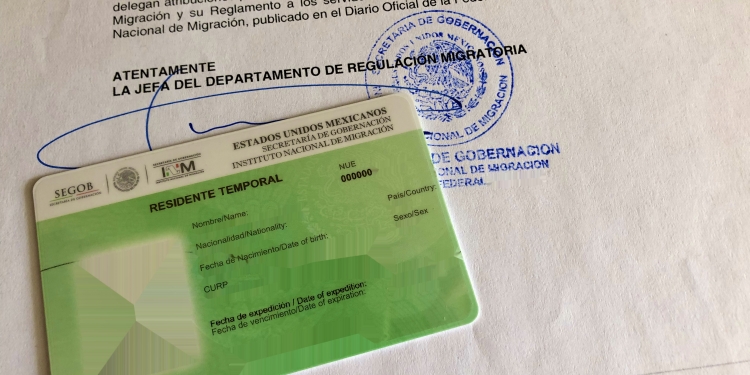
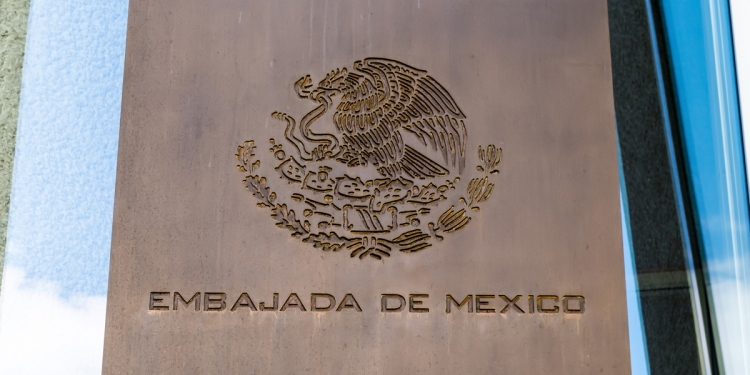
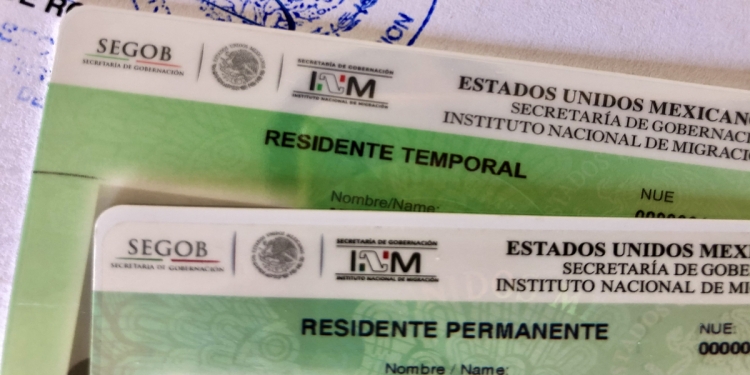
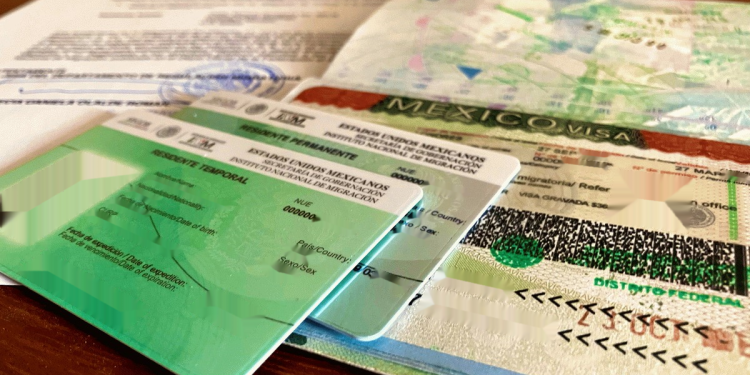


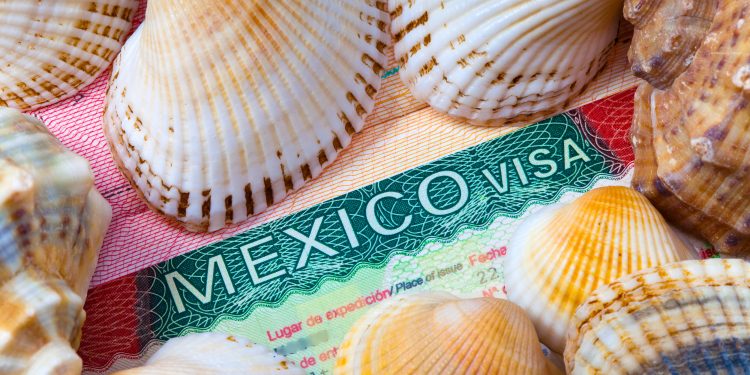
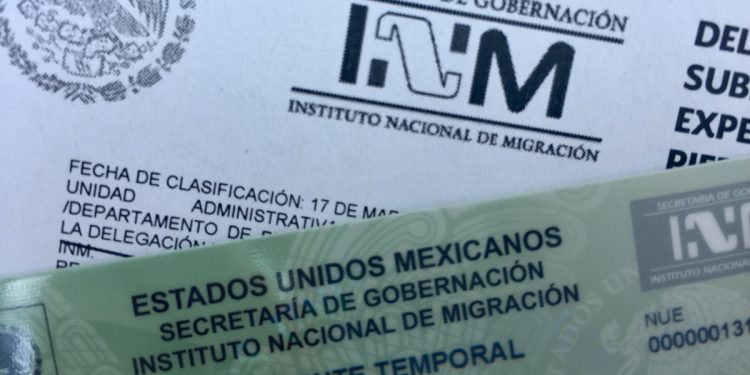
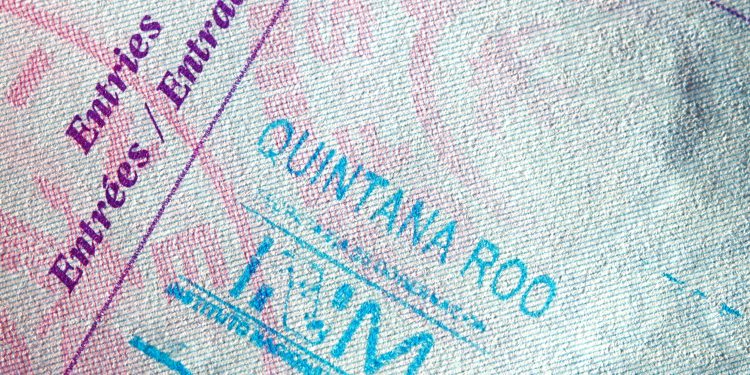

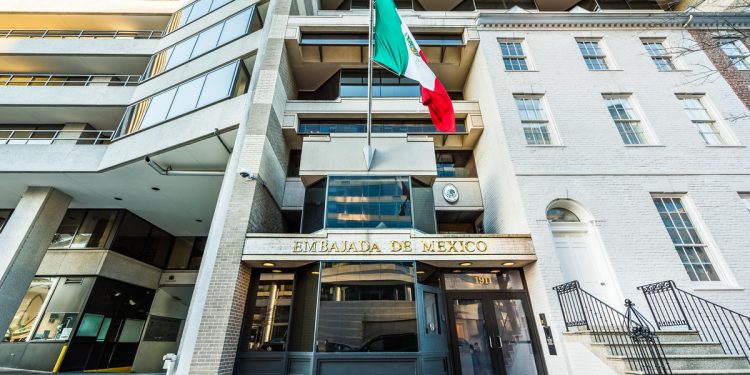
I am curious as to what happens if a person has Residente Temporal status but has left and subsequently re-entered Mexico on a tourist visa. Has the RT card automatically been invalidated? Is it possible to exit and re-enter using the RT, thus re-validating it?
Hi Mary, if you are already a temporary or permanent resident in Mexico and you leave then re-enter Mexico as a tourist then you put your residency status at risk. If this happens you should contact your nearest INM to ask how to “regularize” your immigration status (fees and fines may apply). If you are resident, it’s very important to re-enter Mexico every time using your residency card and not come in registered as a visitor/tourist.
Hi, I’m a foreign spouse of a Mexican National. We are now living in Mexico and I have my temporary residency. I know that I have to wait for 2 years to get my permanent one. My question is: Can I apply for the Mexican citizenship once I get the permanent residency or I have to wait another 2 years?
Thank you.
Hi Eduardo,
When foreign nationals are married to Mexican nationals, the waiting period before the foreign national can apply for Mexican citizenship is only 2 years with *either* Residente Temporal or Residente Permanente status.
However, as it takes at least 6 months to process the citizenship application, you should take care to ensure that your current migratory status does not expire during this time.
If you would like one-to-one advice about making the application, you might consider using our associates assistance services, details here:
https://www.mexperience.com/get-assistance-with-your-mexico-residency-application/
Hello, we are currently in the process of my dad’s temporary resident visa renewal/extension and we are having problems with the immigration here in our city. Is there any way we can get help or consultation in English?
Hi Karen, you could either contact a local immigration lawyer in your city, or otherwise you might consider our associates residency assistance service, that offers advice/troubleshooting by telephone/email/chat to help you resolve the issue. https://www.mexperience.com/get-assistance-with-your-mexico-residency-application/
Hello, my husband is a Mexican citizen and I want to move to Mexico with him and be able to come back to theUSA at least once a year. Do I still need to become a mexican citizen?
Hi Angela
You don’t need to take-up Mexican Citizenship, you can move to Mexico under auspice of a Residente Temporal (which can later be exchanged for Residente Permanente). Either permit allows you unlimited exits and re-entries to Mexico throughout the year, so you can come and go as you please.
Hi,
I am living in mexico since 2 years with a temporary residence having permission to work. i got the temporary resident card under the condition of A foreign spouse of a Mexican National. but last year we are divorced and the civil status was updated to INM, this year on May I applied for a renovation of my temporary resident card through my work, they rejected the application and sent a mail that the renovating procedure and the current resident temporal card is cancelled because i don’t have a reason to prove my stay in Mexico (according to them i got the visa because of marriage, currently we are separated and don’t have children who born in mexico. they are not considering the work as a reason). is there a way to extend my current visa or any other process i have to follow? it will be great if someone help me with this.
Hi David
You situation sounds complex and really needs to be taken on a per-case basis before any choices can be considered. You might like to contact an immigration lawyer locally where you live, or alternatively you might find the one-to-one consultancy our associate offers a useful option to discuss your situation in detail by telephone/email/chat: you can find details of the service on this page: https://www.mexperience.com/get-assistance-with-your-mexico-residency-application/
Wishing you well with the process.
Hi, I’m from the UK and live there currently but I’m planning to go to Mexico to get married to my partner who is a Mexican national and hope to live there with him. Once I’m married, does this mean I can apply for a temporary residency whilst I’m there?
Hi Amy, yes as the spouse of Mexican national, you can apply in-country as explained in the article above.
Note that you will need any foreign documents the immigration authorities ask for Apostilled (UK birth certificate, for example) and then translated in Mexico. See the article above for links about that.
We spend a lot of time in Mexico. Basically, we would like to be able to stay longer than 6 months if we so choose, and to be able to work locally while there if we need to. Our oldest daughter (6yrs) was born in Mexico and has a mexican birth certificate. She is also a Canadian citizen now though. My husband is American but has permanent residency in Canada. Because of this, I think we shouldn’t be looking at permanent residency (yet.) As her parents (and younger brother), can we apply for temporary residence through her? And if so, can we do it there, or should it be done in Canada? Thanks.
Hi Natasha,
All the family can apply for permanent residency through the Mexican child, but the rules do not give you the option of becoming a temporary resident if you have a Mexican child, you have to apply for Residente Permanente.
You can either apply at a Mexican Consulate in Canada or you can come to Mexico using a FMM (visitor’s visa) and change your statuses in-country as described in the article.
Among the required paperwork, you will also need to provide the daughter’s Mexican birth certificate and the little brother’s birth certificate to prove their relation.
If you would like some one-to-one advice and help with the application, you might consider using our associate’s residency assistance service:
https://www.mexperience.com/get-assistance-with-your-mexico-residency-application/
Hi there,
As an investor, do you have any figures on what one need to invest? Or do you have any link to provide to a site that talks about this?
Thank you
Erik
Hi Erik
You can find out more about the various investment qualification types and procedures here:
https://www.mexperience.com/financial-criteria-for-residency-in-mexico/
I am in Mexico and want to file for my temporary residency. My wife is a Mexican national. Is this one of the cases where I can do it from in the country? We have a marriage certificate from where we married in California but have been told by someone that we have to go back to Ca and have it apposileded.. Any help would be appreciated.
Hi Greg,
As the foreign spouse of a Mexican national you can apply for residency in-country.
All foreign-issued legal documents presented to INM need to be Apostilled and translated into Spanish, that includes birth certificates and marriage certificates etc., see the links in the article about doing this.
If you can get a copy of your marriage certificate Apostilled by someone for you by someone in the USA and couriered to you, that would save having to travel back yourself.
People who married in Mexico don’t need this as the Mexican Marriage Certificate is recognized by the Mexican Immigration officers without an Apostille.
Hi,
My wife is working in Mexico and has a temporary residence card. As her spouse, I have also applied for and received a temporary residence card. When she receives her permanent residence card (after 4 years) will I also be able to apply for and receive a permanent residence card?
Thank You,
Keith
Hi Keith,
The spouse must be married to a *permanent* resident for 2 years in order to become permanent him/herself.
In your case, you will get permanent residency with the 4 years rule before you have 2 years of temporary by being married to a permanent resident; i.e. you will become permanent after 4 years of temporary residency, regardless of the family unit (as long as your wife continues to keep her current legal immigration status meantime).
My wife’s mother has permanent residency. Can my wife and I both apply for permanent residency in Mexico?
Hi William,
You don’t qualify for residency under the family unit rules. A daughter of a permanent resident can, but only if she is not married and she is under 18 years old.
You’d both have to apply for residency using alternative routes – i.e. usual qualification criteria outside of family unit.
If you are the foreign spouse of a Mexican National, can you get permanent residency? Above it is only listed for Temporary Residency.
Hi James,
If you are the foreign spouse of a Mexican National, you must first apply for Temporary Residency in Mexico and then after 2 years you can apply to exchange that for Permanent Residency.
Hi, can you tell me whether the “foreign spouse of a Mexican National” also includes Civil Partnerships?
What civil partnerships are recognised?
David, John:
The immigration law states that “Concubinos” (which is sometimes referred to in Spanish as “Union Libre” or in English, “Common-Law union”) can apply under the family unit regime. You need to contact the Mexican Consulate abroad you apply at to ask what evidence they require, or if you apply in Mexico, ask at the local immigration office in Mexico. We understand that the immigration office in Mexico might ask you to apply to a local judge or Notary Public with evidence of your civil partnership and they would issue a certificate to this effect that you present to the immigration office as part of your application.